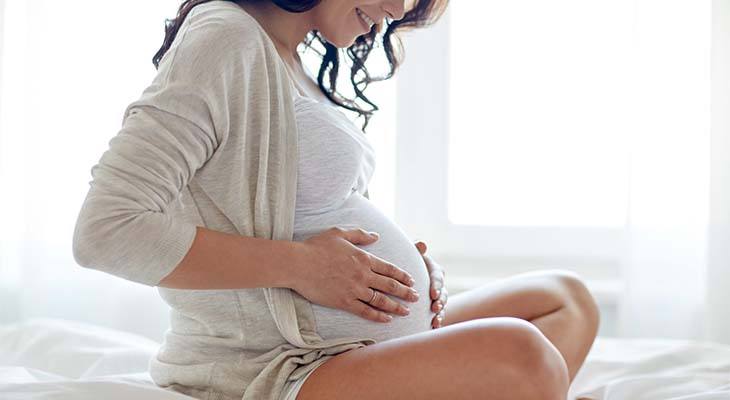As an expecting mother, you may be wondering about your baby’s brain development during pregnancy. It’s important to understand that your baby’s brain is developing at a rapid pace during this time, and there are certain things you can do to help support healthy brain development. In this blog post, we’ll explore the different stages of baby brain development during pregnancy and provide some tips for promoting healthy brain growth.
Table of Contents
Stages of Baby Brain Development During Pregnancy
The development of a baby’s brain is a complex process that begins in the first few weeks of pregnancy and continues throughout childhood. Here are the different stages of baby brain development:
Weeks 1-4:
During the first few weeks of pregnancy, the neural tube is formed. This is the part of the embryo that eventually becomes the brain and spinal cord.
Weeks 5-8:
By week five, the brain is starting to take shape. The different parts of the brain, such as the cortex and the cerebellum, begin to form. The neural tube also starts to close at this stage.
Weeks 9-12:
During this stage, the brain continues to grow and develop. The cerebral cortex, which is responsible for conscious thought, begins to develop. The brain also starts to produce neurons at a rapid pace.
Weeks 13-16:
By week 13, the baby’s brain is fully formed in terms of structure. However, the neurons are not yet fully connected. During this stage, the brain starts to produce myelin, which is a fatty substance that helps to insulate the neurons and speed up communication between them.
Weeks 17-20:
During this stage, the baby’s brain is continuing to grow and develop. The connections between neurons are becoming more complex, allowing for more advanced cognitive processes.
Weeks 21-24:
At this stage, the cerebral cortex is becoming more specialized. Different regions of the brain are responsible for different functions, such as language and vision.
Weeks 25-28:
The brain is continuing to develop rapidly at this stage. The baby is starting to develop memory and is able to respond to external stimuli, such as sounds and light.
Promoting Healthy Baby Brain Development During Pregnancy
Now that you understand the different stages of baby brain development during pregnancy, you may be wondering what you can do to promote healthy brain growth. Here are some tips:
Eat a Healthy Diet:
Make sure you’re eating a balanced diet that includes plenty of fruits, vegetables, and lean protein. Certain nutrients, such as folate and omega-3 fatty acids, are particularly important for brain development.
Get Plenty of Sleep:
Getting enough sleep is important for both you and your baby. During sleep, the brain consolidates memories and processes information, which is important for brain development.
Stay Active:
Exercise is good for both you and your baby. It can help to reduce stress and improve circulation, which is important for delivering nutrients and oxygen to the developing brain.
Reduce Stress:
Stress can have a negative impact on both you and your baby. Try to find ways to reduce stress, such as practicing relaxation techniques or talking to a therapist.
Talk to Your Baby:
Talking to your baby can help to stimulate brain development. Even though your baby may not be able to understand what you’re saying, the sound of your voice can be soothing and comforting.
 Source: bing.com
Source: bing.comFrequently Asked Questions About Baby Brain Development During Pregnancy
Q: Can what I eat during pregnancy affect my baby’s brain development?
A: Yes, what you eat during pregnancy can have an impact on your baby’s brain development. Make sure you’re eating a balanced diet that includes plenty of fruits, vegetables, and lean protein. Certain nutrients, such as folate and omega-3 fatty acids, are particularly important for brain development.
Q: Is it safe to exercise during pregnancy?
A: Yes, it’s generally safe to exercise during pregnancy. In fact, exercise can be beneficial for both you and your baby. However, it’s important to talk to your healthcare provider before starting any new exercise routine.
Q: Can stress during pregnancy affect my baby’s brain development?
A: Yes, stress during pregnancy can have a negative impact on your baby’s brain development. Try to find ways to reduce stress, such as practicing relaxation techniques or talking to a therapist.
Q: How much sleep do I need during pregnancy?
A: Most adults need 7-9 hours of sleep per night, and pregnant women are no exception. Getting enough sleep is important for both you and your baby.
Q: When should I start talking to my baby?
A: You can start talking to your baby as soon as you find out you’re pregnant. Even though your baby may not be able to understand what you’re saying, the sound of your voice can be soothing and comforting.
In conclusion, understanding baby brain development during pregnancy can help you make informed choices to support healthy brain growth. By eating a healthy diet, getting plenty of sleep, staying active, reducing stress, and talking to your baby, you can help promote optimal brain development for your little one.
